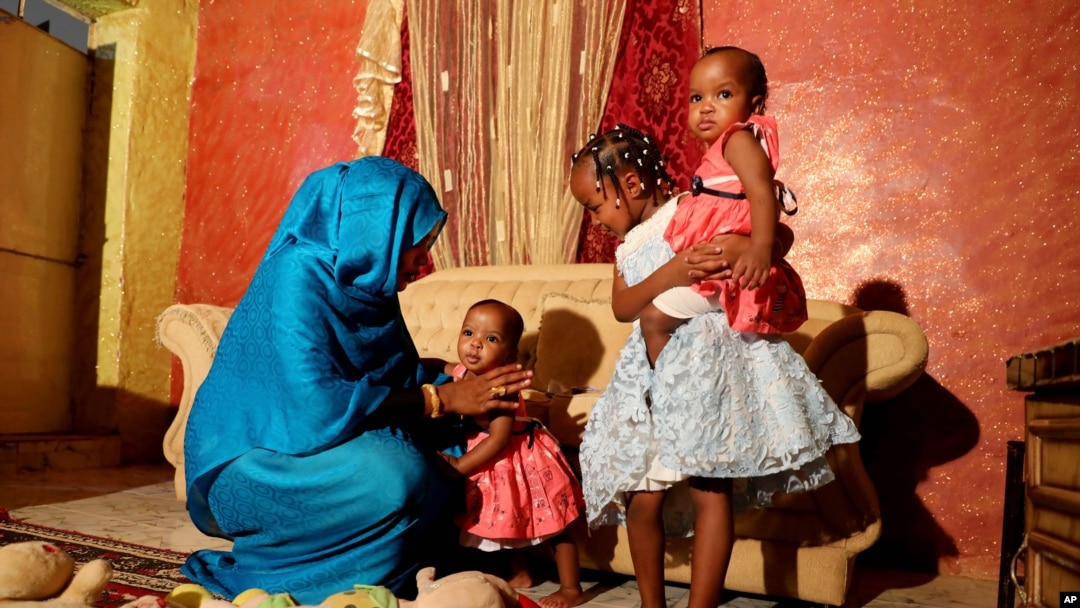A human rights activist says Sudan’s move to change several laws from the Omar al-Bashir administration, including one that imposes the death penalty for Muslims who leave their religion, marks a big step toward making the country more respectful of basic human rights.
“We commend the step by the current transitional government and particularly the minister of justice and his diligent work to have all the laws be consistent with the charter for the transitional period 2019,” Adlan Ahmed Abdelaziz, an activist with the U.S.-based Sudan Human Rights Network, told VOA’s South Sudan in Focus.
Justice Minister Nasreldin Abdulbari took to the airwaves Saturday to say the transitional government, which came to power last year after the military ousted Bashir, has enacted several constitutional amendments. One cancels capital punishment for Muslims who leave their faith. Another allows non-Muslims to drink alcohol in private places without fear of prosecution.
In addition, the government enacted a new law that criminalizes female genital mutilation, also known as female circumcision.
“The constitutional document came as the result of a long and a deep negotiation which meant to reflect the aspiration of the [2019] revolution. It stipulates law reforms that direct the transitional government to carry out responsibilities that secure freedoms and rights of all Sudanese people,” said Abdulbari.
The repealed laws were included in Sudan’s 1991 penal code during Bashir’s administration but first introduced in 1983 under then-Sudanese President Jafar Nimeiri.
The apostasy law was used as a political tool by Nimeiri and Bashir to limit freedom of religion and to silence critics, said Abdelaziz.
In 1985, Mahmoud Mohamed Taha, a Sudanese religious leader and trained engineer, was executed by the Nimeiri administration on apostasy charges after he called for abolishing Sharia Law in Sudan.

FILE - Sudanese people celebrate the signing of a constitutional declaration between the deputy head of the Sudanese Transitional Military Council, Mohamed Hamdan Dagalo, and opposition alliance leader Ahmad al-Rabiah, in Khartoum, Aug. 4, 2019.
In contrast, Sudan’s 2019 transitional constitution, which was drafted after President Bashir’s ouster, states, “People are equal before the law, and have the right to the protection of the law without discrimination between them because of ethnicity, color, gender, language, religious faith, political opinion, racial or ethnic origin, or any other reason.”
The constitution guarantees freedom of religion and worship to all citizens, stating, “No one shall be compelled to convert to a religion they do not believe in or to practice rites or rituals they do not voluntarily accept.”
The government also amended a constitutional clause that banned alcohol consumption and punished offenders by public flogging. The amendment exempts Christians from the ban, but Abdelaziz said the change should apply to all citizens.
“Should a Muslim carry an identity [card] saying I’m Muslim and a Christian carry an identity [card] saying I’m Christian?” said Abdelaziz.
The new government also amended a law that gave authorities the right to arrest and convict people for prostitution based on “suspicion.” Under that law, consensual sexual relations outside the marriage were considered prostitution.
Another new law criminalizes female circumcision, also known as female genital mutilation, making it punishable by up to three years in prison.
Umannas Adam, who hails from Sudan’s western region of Darfur, told South Sudan in Focus thousands of Sudanese women have lost their lives during labor as a result of FGM practices.
“There has been a significant increase in mortality rates among our communities and most of them are related to the female genital mutilation practices. This law would help in reducing mortality and allows many women to survive,” said Adam.
According to the United Nations, nine out of 10 females in Sudan between the ages of 15 and 49 have undergone some form of FGM, which can lead to myriad physical and psychological problems.
Activists also embraced the new Personal Status Law, which allows Sudanese women to travel with their children outside the country, without attaining prior permission from their spouses.
FILE - Women chant slogans during a demonstration calling for the repeal of family law in Sudan, on the occasion of International Women's Day, outside the Justice Ministry headquarters in Khartoum on March 8, 2020.
Khartoum women’s rights activist Suleima Ahmed Ayoub said her 15-year-old daughter was never allowed to accompany her when she traveled outside Sudan because her former husband refused to give his permission.
“He banned his daughter from traveling since she was two years old in Sudan, and my passport was written ‘wife,’ they did not write my own name on it. And when he divorced me, I decided to go back for further studies. Whenever I wanted to go out or travel anywhere, authorities demanded permission from my husband, even though I was divorced,” Ayoub told South Sudan in Focus.


